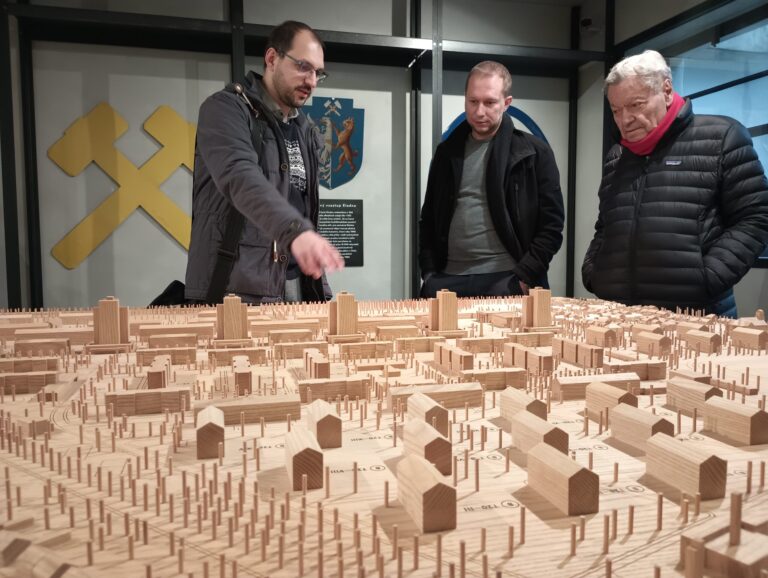Physical Address
304 North Cardinal St.
Dorchester Center, MA 02124
Physical Address
304 North Cardinal St.
Dorchester Center, MA 02124

Most master plans are a costly effort by a team of temporary consultants, spread over two to three years, to prepare a blueprint that is usually obsolete as soon as it is completed.

How do urbanists respond to a disaster? Emails from Brazil's Rodrigo Rocha show innovation and personal resilience in the face of crisis.
Caos Planejado, in conjunction with Editora BEI/ArqFuturo, recently published A Guide to Urban Development (Guia de Gestão Urbana) by Anthony Ling. The book offers best practices for urban design and although it was written for a Brazilian audience, many of its recommendations have universal applicability. For the time being, the book is only available in Portuguese, but after giving it a read through, I decided it deserved an english language review all the same. The following are some of the key ideas and recommendations. I hope you enjoy. GGU sets the stage with a broad overview of the challenges facing Brazilian cities. Rapid urbanization has put pressure on housing prices in the highest productivity areas of the fastest growing cities and car centric transportation systems are unable to scale along with the pace of urban growth. After setting the stage, GGU splits into two sections. The first makes recommendations for the regulation of private spaces, the second for the development and administration of public areas. Reforming Regulation Section one will be familiar territory for any regular MU reader. GGU advocates for letting uses intermingle wherever individuals think is best. Criticism of minimum parking requirements gets its own chapter. And there’s a section a piece dedicated to streamlining permitting processes and abolishing height limits. One interesting idea is a proposal to let developers pay municipalities for the right to reduce FAR restrictions. This would allow a wider range of uses to be priced into property values and create the institutional incentives to gradually allow more intensive use of land over time. Meeting People Where They Are Particular to the Brazilian experience is a section dedicated to formalizing informal settlements, or favelas. These communities are found in every major urban center in the country and often face persistent, intergenerational poverty along with […]

My guest this week is Anthony Ling. Anthony is founder and editor of Caos Planejado, a Brazilian website on cities and urban planning. He also founded Bora, a transportation technology startup and is currently an MBA candidate at Stanford University. He graduated Architecture and Urban Planning at Universidade Federal do Rio Grande do Sul and worked with Isay Weinfeld early in his career. Read more about the ideas discussed in this week’s episode: Be sure to check out Caos Planejado. Whether Portuguese is your native language or you’re interested in Brazilian urban planning issues, it’s a fantastic resource. Learn more about the emergent order of informal favela development. Everyone interested in urban planning should, at the very lease, read the Wikipedia article on Brasilia. Learn more about on-demand transit. Help spread the word! If you are enjoying the podcast, please subscribe and rate us on your favorite podcasting platform. Find us on iTunes, PlayerFM, Pocket Casts, Stitcher, and Soundcloud. Our theme music is “Origami” by Graham Bole, hosted on the Free Music Archive.
Anthony Ling, an excellent Brazilian blogger who also happens to be an avowed market urbanism, gives us an interesting look at the politics and economics of low-income housing in Brazil: In Brazil there is a vast regulation defining what are the minimum requirements to have a building approved by local authorities. The most common example is probably the Building Codes set by each city, but specific details imposed by planning, environmental and building departments of each city are added to the equation. The recently created Performance Standard also follows this same path, being enforced nationally. The explanation given to establish this regulation is the legal guarantee that every citizen will have a minimum quality of living. However, those who study public policy understand that the passing of a law does not miraculously create high standard buildings accessible to all and, like many other laws, produces effects opposite to those desired. The lower standard building prohibition does just that: tough regulation prevents entrepreneurs from building accessible housing for the poor. This results in government spreading the idea that entrepreneurs think only about attending the high class, and transforms itself as the hero that will build millions of popular houses, as [Brazilian Pres. Dilma Rousseff] did with the Minha Casa, Minha Vida [My House, My Life] program. I think this has a very close parallel in modern American cities with inclusionary zoning and affordable housing mandates. In Brazil, the government creates a housing shortage by having unrealistical building safety standards (which ironically, as Anthony explains, encourage slums that are completely unregulated) and then swoops in and acts plays the savior with its own housing projects. In America, the government creates the shortage through sprawl-forcing zoning codes. But unlike Brazil’s public housing, our politicians instead use rent control (rebranded as “inclusionary zoning” or […]